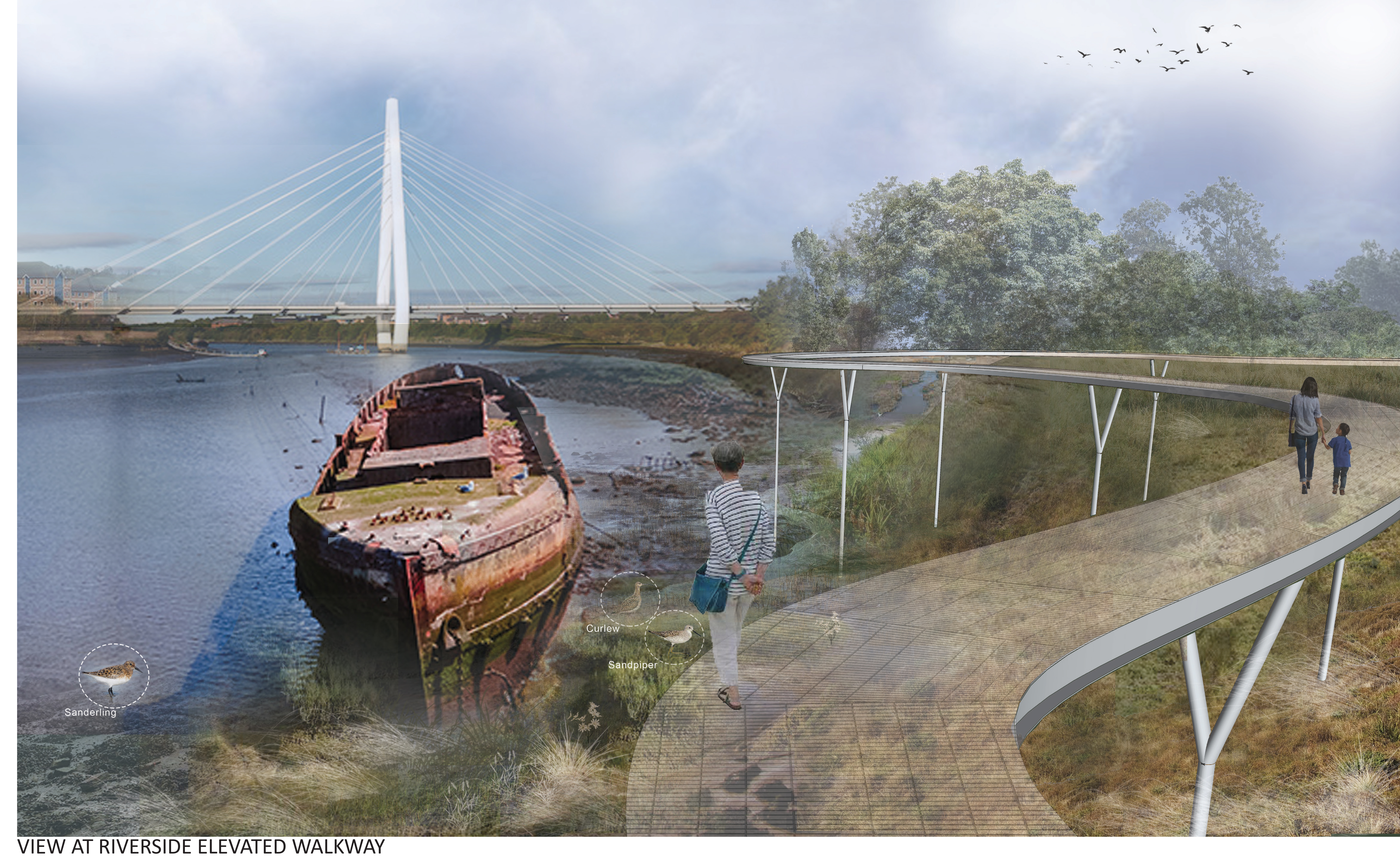
Experimental: Destruction - Recreation
Master of Landscape Architecture
Newcastle Upon Tyne
Postindustrial sites are a legacy of the industrial age that has contributed to nation building in the past. However, such sites also leave behind industrial waste materials. The site chosen for the following project is in Pallion, a former ship building yard in Sunderland in the North East of England. Ship building yards come and go, leaving behind large amounts of inert industrial wastes like concrete, which are taken over and broken down by natural elements like water and vegetation with time. Water is visualized as a constructive and destructive element, and is a critical factor for the ship building industry.
Reflecting on site history and exploring the parallel relationship between natural factors present on site with concrete drives the design that reclaims this postindustrial site. Therefore, the project ‘Experimental: Destruction - Recreation’, explores the potential of erosion of concrete by existing elements on site: water and transgressive vegetation. The project seeks to identify and facilitate natural processes on site that follow a pattern of destruction and recreation, to encourage alternative methods of industrial land reclamation. Concrete is eroded by water, facilitating the release of alkalis and precipitation of calcium carbonate, leading to concrete’s destruction. This is seen as an opportunity and experimentally explored to establish shallow alkaline calcareous grasslands.
